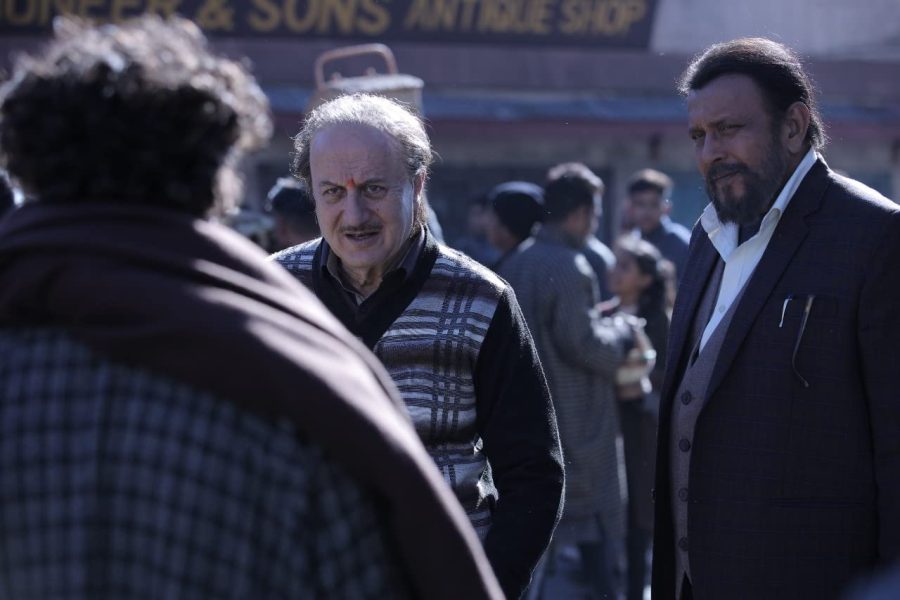Opinion | Reactions to ‘The Kashmir Files’ are unacceptable
Mithun Chakraborty and Anupam Kher star in the new drama “The Kashmir Files” that released on March 11. Columnist Sanchita Teeka argues that the reviews for the film are inappropriate and how lost lives should not be remembered as numbers.
Apr 5, 2022
Trigger warning: This column discusses rape and murder.
“But others suffered worse.” “This doesn’t even compare to what happened to them.” “The numbers are wrong; actually only (blank) number were killed.”
Believe it or not, these are just a few of the reactions people have had to the release of the film “The Kashmir Files.” Simply put, these statements are neither valid nor an appropriate response and show the lack of humanity in people’s reaction to this new film.
“The Kashmir Files” was released on March 11 and became incredibly popular for both its controversy and brutally raw depiction. As of March 26, the film has grossed around $38 million and saw a 323% increase in sales from its first to third day. As expected, the popularity of the film has people around the world taking part in debates and conversations.
Kashmir is a region between India and Pakistan that both countries claim to be theirs. The countries went to war over this territory and ended with a cease-fire line in 1949 with both countries controlling different sections of Kashmir.
Get The Daily Illini in your inbox!
On the Indian side, there has been incredible violence seen from separatists and Islamic militants opposed to Indian rule. “The Kashmir Files” is a movie based on the unheard true testimonies of those who were victims of the Kashmir Pandit Exodus in the early 1990s.
During this time, hundreds of thousands of Kashmir Pandits, Hindus native to the Kashmir Valley, were ethnically cleansed and forced out of their homes by Islamist militants. Many were tortured, raped and killed during this exodus, but until now, their experiences haven’t been validated.
Today, only a few thousand Kashmir Pandits remain in the Kashmir region.
Some completely accept the movie’s depiction of the exodus, while others have immediately reacted to the Kashmir Pandit’s experiences with a comparison to other people’s sufferings in the Kashmir region.
Not only is this comparison incredibly ill-timed, but it is also immoral. When a minority group’s real, difficult experiences are finally coming to light, it is wrong to mention how difficult other people had it.
Even more unacceptable are aims to “fact check” the numbers of the exodus. People are now arguing whether it was 300,000 or 100,000 made to flee or whether it was 4,000 or 400 killed.
To simplify human injustice to a mere numbers game is deplorable.
It doesn’t matter what the exact numbers were; the fact that these are real people’s stories matters enough. For instance, on Instagram, Sidhi Raina writes of her own family’s experiences and how incredibly similar it was to the film’s portrayal.
The film shows a mother who is sexually assaulted by militants and is then brutally murdered. Raina writes of her own aunt who was similarly kidnapped, tortured, raped and killed. In fact, the account of the real experience is more violent and horrendous than the film shows.
Her family is just one of the many that have suffered these atrocities and serves as a reminder that this fictional film is based on truth. Even if it had just been her family with such an experience, it would matter just the same. The story would be just as appalling and just as important to hear about.
Take the stories from the film for what they are based on — real accounts of people. Human lives are not and should never be considered quantifiable. When we simplify injustices to numbers, that’s when we lose our humanity.
Sanchita is a freshman in LAS.






